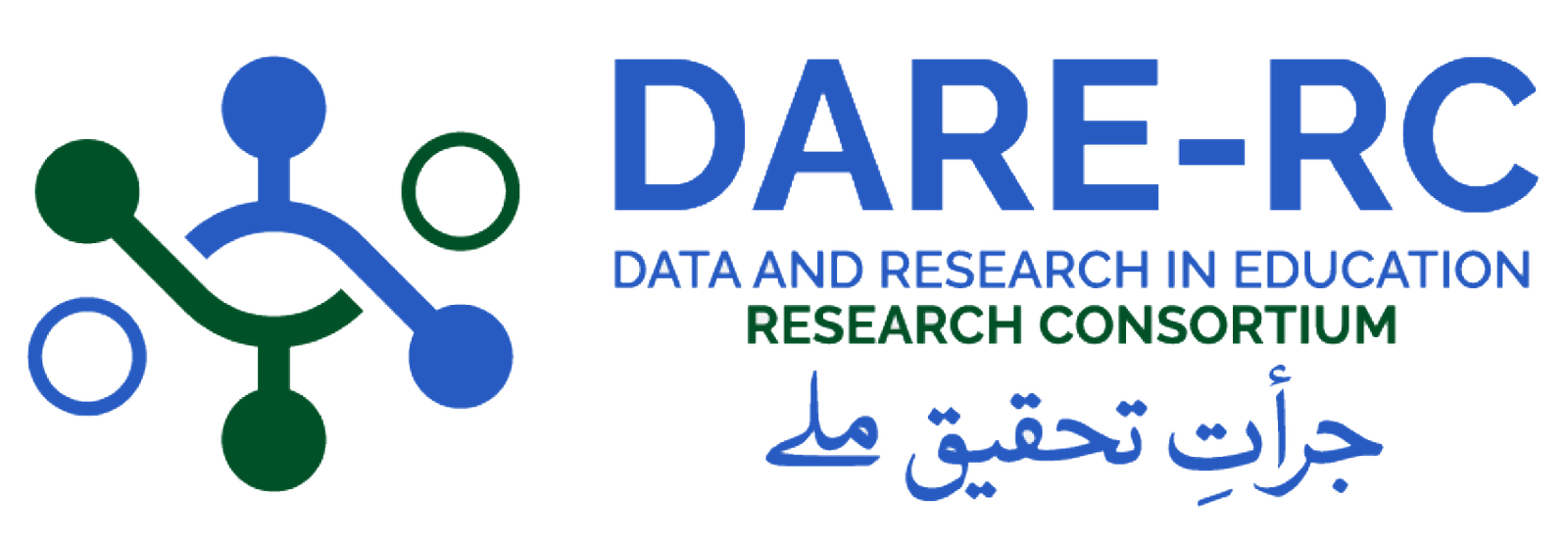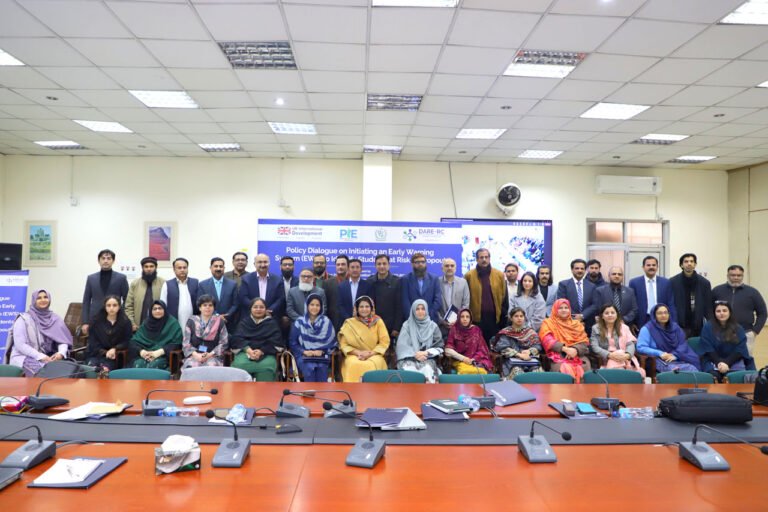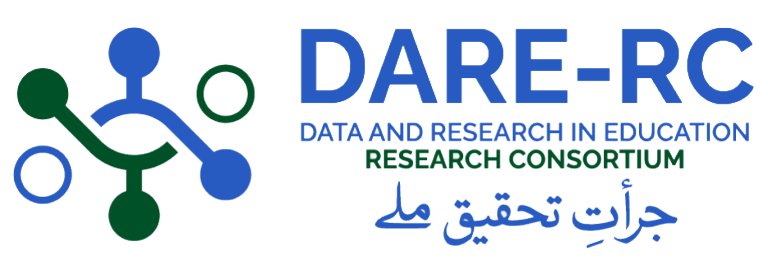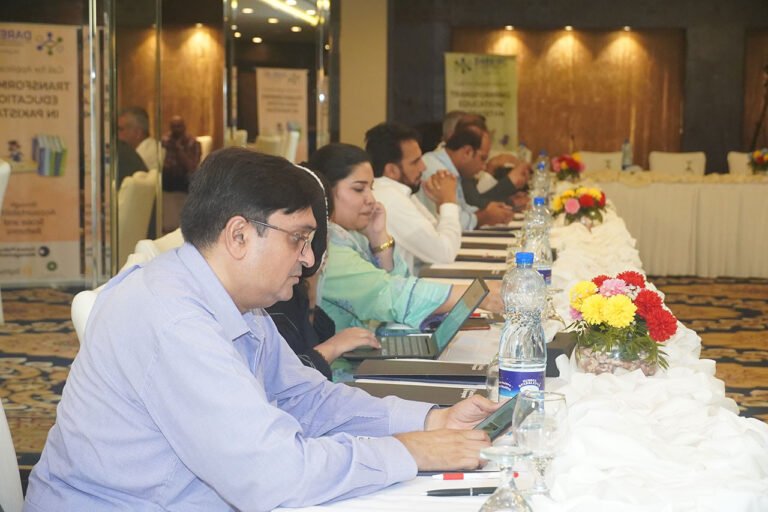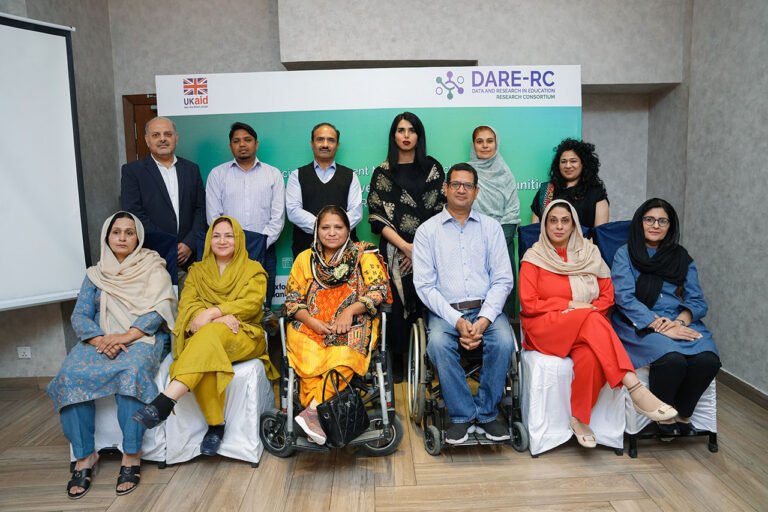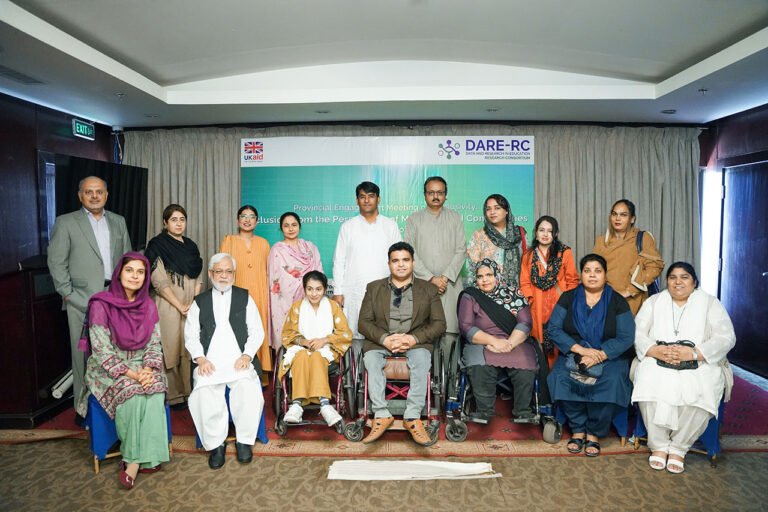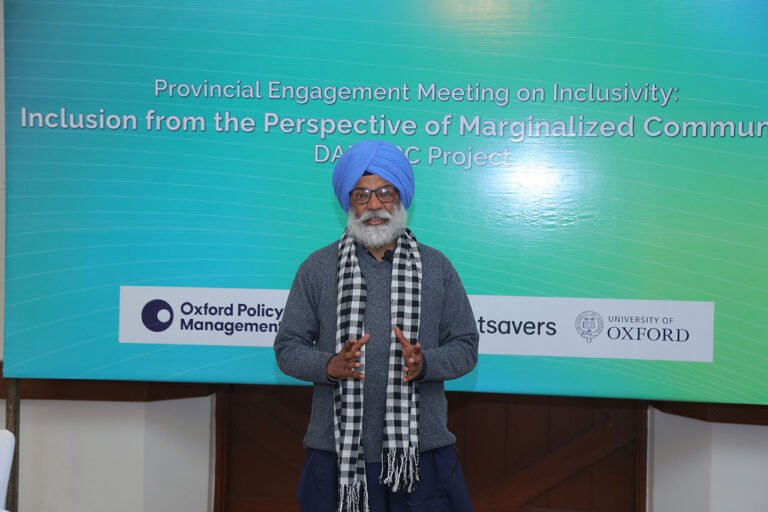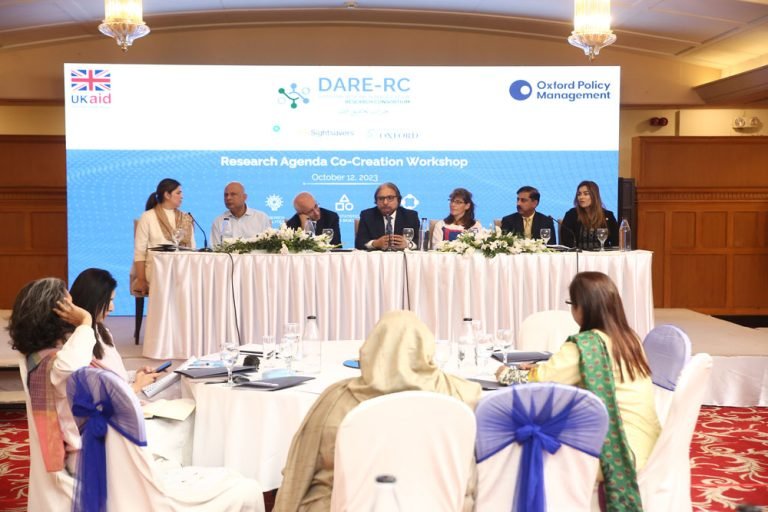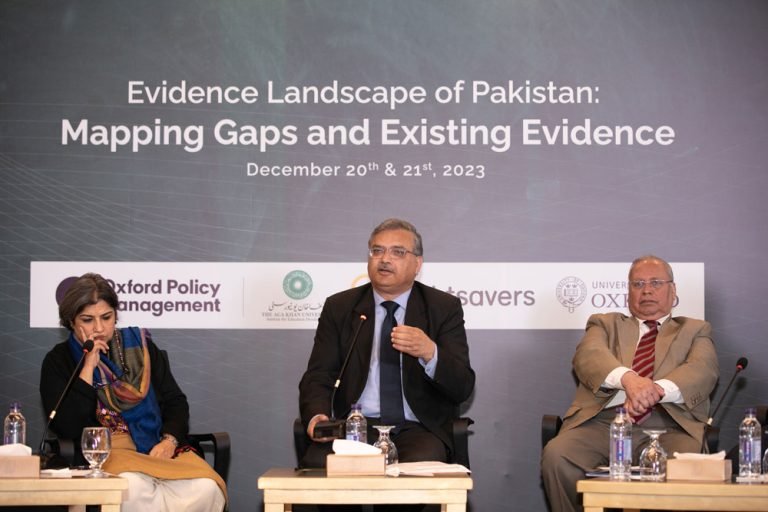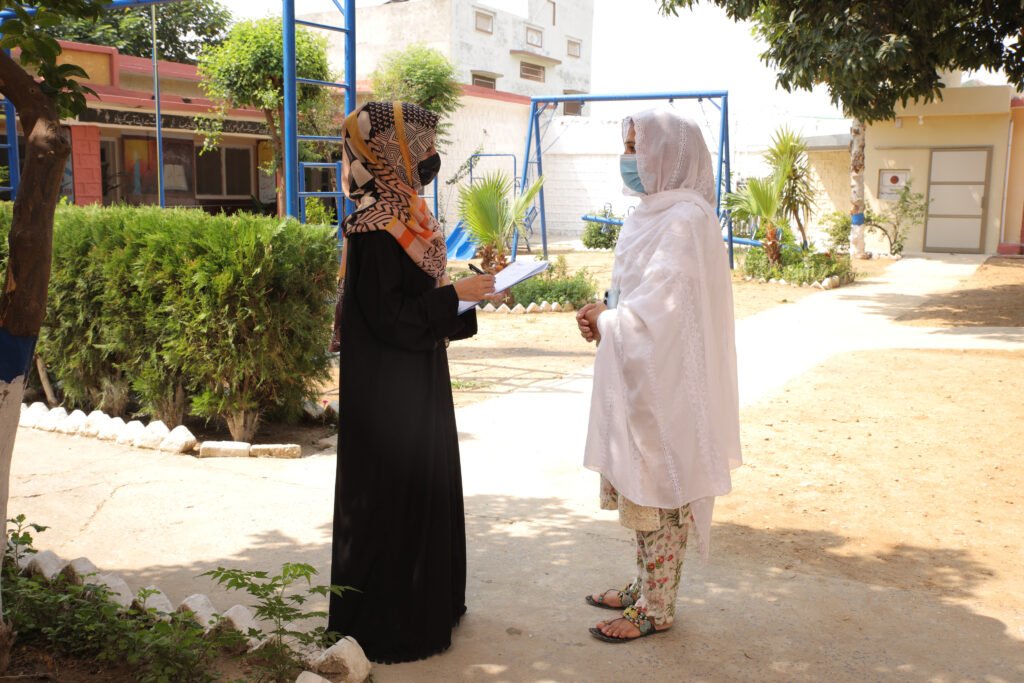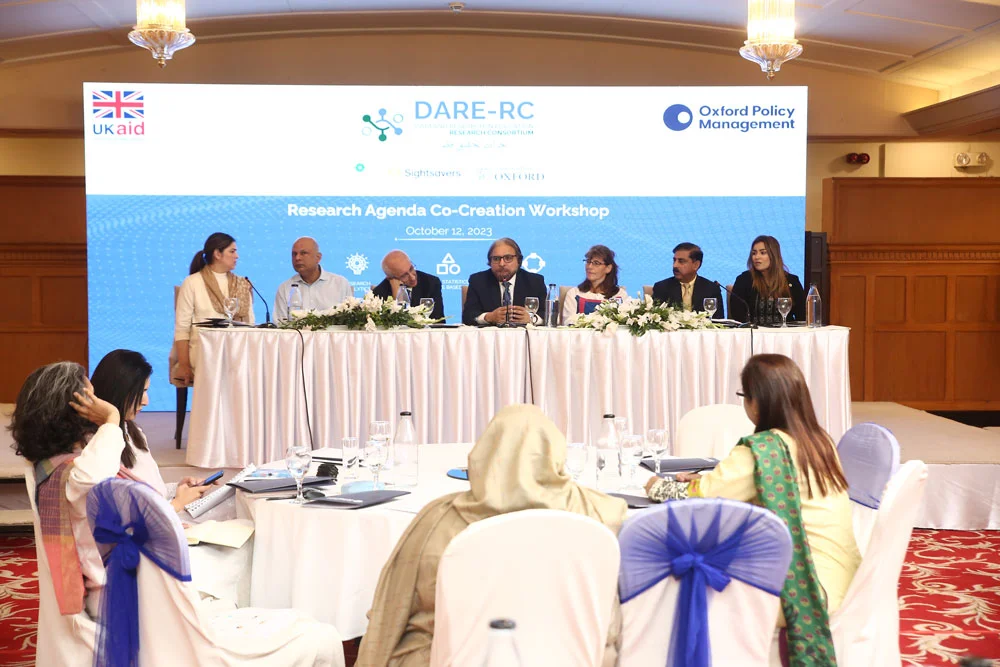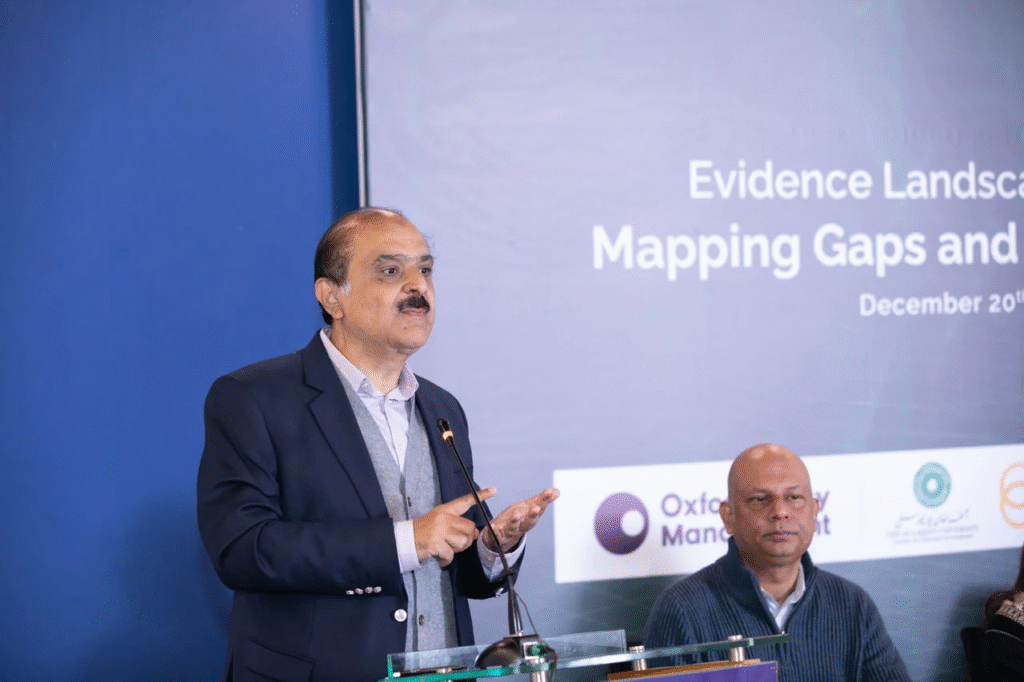Latest Events
The Pakistan Institute of Education (PIE) and the Data and Research in Education – Research Consortium (DARE-RC) – a project funded by UK International Development – jointly organised a Policy Dialogue on “Initiating an Early Warning System (EWS) to Identify Students at Risk of Dropout” at the PIE Auditorium.
The event convened policymakers, education experts, and development partners to deliberate on strategies to address the urgent challenge of school dropouts in Pakistan. With over 26.2 million children aged 5-16 years currently out of school, the dialogue underscored the importance of innovative, data-driven solutions to improve retention rates and ensure equitable access to education. Central to the discussions was the Early Warning System, a globally recognised framework that uses indicators such as attendance, academic performance, and socio-economic conditions to identify students at risk of dropping out. This enables targeted and timely interventions to prevent dropouts and foster inclusive education.
The event began with a welcome address and opening remarks, followed by a multimedia presentation showcasing global successes with EWS models and a live demonstration of the Sindh Early Warning System model. Group discussions and a panel session, moderated by leading education experts including Dr Zaigham Qadeer and Dr Sajid, provided a platform for actionable recommendations to inform policy and practice.
Participants developed a tailored framework for EWS implementation in Pakistan and proposed steps to integrate the system into national and provincial education strategies. The dialogue also fostered collaboration among senior government officials, provincial education departments, and donor agencies including FCDO, the World Bank, UNICEF, JICA, and UNESCO. Representatives from NGOs and development organisations were also present, contributing their expertise and insights. The outcomes included a roadmap for piloting EWS initiatives in select regions with plans for scaling them nationally.
Hassan Saqlain, Additional Secretary at the Ministry of Federal Education and Professional Training, in his address emphasised the critical importance of early interventions in reducing school dropout rates. He stated, “Addressing the issue of school dropouts is not just a matter of improving education statistics, but a matter of ensuring a brighter future for our children and the nation’s prosperity. Through initiatives like the Early Warning System, we are taking a decisive step in identifying at-risk students early and providing them with the support they need to stay in school.”
Director General PIE, Dr Shahid Soroya, highlighted the critical need for targeted interventions to combat dropout rates. “Education is the bedrock of progress. Through data-driven solutions like the Early Warning System, we can transform Pakistan’s education landscape and ensure every child has access to quality education,” he stated.
“We must act now to develop and deploy contextually appropriate strategies for ensuring retention of students through accessible quality education. An effective EWS based on reliable and relevant evidence offers the opportunity of robust monitoring of students at risk of dropping out. It will help in reduction of dropout rates through a shift to multi-sectoral strategies identifying and tackling the debilitating factors that hinder children’s continued participation in learning and skills development,” said Asfundyar Khan, Deputy Programme Director at DARE-RC.
This Policy Dialogue exemplifies the collective commitment of PIE, DARE-RC, and their partners to evidence-based policymaking and cross-sector collaboration. It reaffirms Pakistan’s dedication to achieving Sustainable Development Goal 4 of inclusive and equitable quality education for all.
Introduction
Climate change-related hazards and cascading adverse events, such as disasters, displacement, disruptions and conflicts, have substantially exacerbated the ongoing education crisis and social inequalities and have become a major driver of economic losses and development setbacks. The impact of these adversities is much greater for those facing social disadvantage, young people living in rural areas, low-income families and laearners with disabilities.
Main objectives
This study will generate contextually grounded evidence on what resilient education means for adolescents (between ages 10 and 19), their teachers, education authorities and communities in Pakistan.
The study will seek to answer:
- How do adolescents, including learners with disabilities, their teachers and their communities understand and experience natural and man-made disaster related risks and their impact on learning?
- What does a resilient education system mean to them? What do they perceive as their role in risk management, adaptation and resilience building?
- How are parents and communities engaged in education system resilience building activities and how can their resilience be strengthened?
- How gender, location (urban/rural) and disability affects experiences of a risk-informed learning environment and resilience building?
Added value of the study
This research is highly relevant to Pakistan as it faces a critical challenge around inclusion of learners’ agency, climate change and education. Pakistan has a high proportion of learners and education communities affected by climate-related annual disasters. This study focuses on adolescent learners whose participation and agency, despite being key stakeholders in education, are highly marginalised in policies related to education and climate justice.
This study offers a clear route to generating meaningful benefit for all the participating groups. It will directly empower all participants through sharing their perceptions and lived experiences. A key part of this study is to draw on work human development and authentic relating in order to engage meaningfully with them to gather rich data with integrity in a way that honours the time spent with participants. It is expected that participants will gain confidence and feel better able to advocate for themselves and others in the future using the empirical evidence generated by them and about them.
It will also directly benefit the peer researchers. By the end of the study process, it is expected that they will gain knowledge to conduct focus group discussions (FDGs), interpret data and share findings, and learn to advocate for change. Their role may positively influence how they are perceived by others in the community and especially by the education and climate change policymakers. They will have developed a wider network through building relationships with other participants and the research team.
The evidence generated can shape the policy interventions that the Data and Research in Education, Research Consortium (DARE-RC) aims to achieve. Engagement with national policymakers, climate change and education actors, including provincial and federal Ministry of Education, Ministry of Climate Change, national and international non-governmental organisations (NGOs) like the United Nations Educational, Scientific and Cultural Organization (UNESCO), the United Nations Office for Disaster Risk Reduction (UNDRR) and the United Nations International Children’s Emergency Fund (UNICEF) working in education and Pakistan Bureau of Statistics.
Policy and practice implications
This study will provide vital empirical evidence on experiences and perceptions on what resilient education systems mean for adolescent girls and boys, including adolescents with different types of disabilities from different urban and rural settings in Pakistan. It will also generate evidence of parents’, teachers’ and communities’ perceptions of a resilient education system.
Understanding these contextual experiences and how they are mediated through barriers and vulnerabilities related to gender, disabilities and other socio-cultural norms, and risks and hazards related to climate change can directly feed into the policy and programmes related to localised resilient education systems. The use of empirical data and insights generated through research can contribute to evidence-informed policy alignment across sectors that can help to ensure that the co-benefits and intersectoral dependencies between education, climate and environment are made explicit in the implementation of national strategies.
Data and Research in Education – Research Consortium (DARE-RC), marked the beginning of its first research grant cycle today at the Ramada Hotel in Islamabad. The event was attended by key figures from academia, research organisations, government departments, the non-profit and development sectors, and independent researchers.
The DARE-RC programme is led by Oxford Policy Management, funded by the UK International Development, in partnership with the Aga Khan University Institute of Educational Development and SightSavers. The focus of the event was to introduce the “Call for Application Cycle-1” for research grants, providing detailed information on eligibility criteria, grant requirements, and funding modalities.
Participants were briefed on the budget brackets for Small Research Grants (Rs14M to 34M) and Large Research Grants (Rs28M to 80M), as well as the expected duration for each category. Small research projects are expected to be completed within 6 to 12 months, with a possibility of extension up to 15 months, while large projects may span 12 to 18 months, extendable up to 20 months, depending on the scope and methodology.
A comprehensive “Call for Application” document, along with a dedicated FAQ page, was shared during the event. Additionally, participants were introduced to the web-based application process, including the submission of required documents through an online platform.
Harris Khalique, Programme Director of DARE-RC, delivered the welcome note, followed by remarks from a representative of the Foreign, Commonwealth & Development Office (FCDO), who reiterated the UK’s commitment to educational reform in Pakistan.
Dr. Dilshad Ashraf, Deputy Research Director of DARE-RC, highlighted the consortium’s research agenda, focusing on improving learning outcomes for marginalised children and developing resilient education systems.
The event concluded with a Q&A session, providing an opportunity for participants to engage directly with the DARE-RC team. For further information visit the website https://darerc.org/apply-for-grant/ – deadline to submit proposals is 12th September, 2024.
Inclusivity-focused discussions were held across all provinces including Gilgit Baltistan. Participants included CSOs, activists and government departments working on the issues and rights of marginalized communities (PWDs, religious and ethnic minorities, women). The discussion focused on the inclusion of marginalized groups in society in general and in education institutions in particular. These interactions provided a nuanced perspective on the multi-faceted issues of inclusivity and how these may be addressed.
Inclusivity-focused discussions were held across all provinces including Gilgit Baltistan. Participants included CSOs, activists and government departments working on the issues and rights of marginalized communities (PWDs, religious and ethnic minorities, women). The discussion focused on the inclusion of marginalized groups in society in general and in education institutions in particular. These interactions provided a nuanced perspective on the multi-faceted issues of inclusivity and how these may be addressed.
Inclusivity-focused discussions were held across all provinces including Gilgit Baltistan. Participants included CSOs, activists and government departments working on the issues and rights of marginalized communities (PWDs, religious and ethnic minorities, women). The discussion focused on the inclusion of marginalized groups in society in general and in education institutions in particular. These interactions provided a nuanced perspective on the multi-faceted issues of inclusivity and how these may be addressed.
Inclusivity-focused discussions were held across all provinces including Gilgit Baltistan. Participants included CSOs, activists and government departments working on the issues and rights of marginalized communities (PWDs, religious and ethnic minorities, women). The discussion focused on the inclusion of marginalized groups in society in general and in education institutions in particular. These interactions provided a nuanced perspective on the multi-faceted issues of inclusivity and how these may be addressed.
FCDO-funded Data and Research in Education – Research Consortium (DARE-RC) led by the Oxford Policy Management (OPM) along with the Aga Khan University’s Institute for Education Development (AKU-IED) and Sightsavers International, organised a one-day Research Agenda Co-Creation Workshop.
This significant event brought together a diverse array of participants, including public sector representatives at federal and provincial levels, national and international knowledge partners, civil society organisations, development partners, and academia.
Pakistan Institute of Education (PIE), in a significant collaborative effort with the FCDO-funded Data and Research in Education – Research Consortium (DARE-RC) led by the Oxford Policy Management (OPM) along with the Aga Khan University’s Institute for Education Development (AKU-IED) and Sightsavers International, successfully conducted a two-day national workshop titled “Evidence Landscape of Pakistan: Mapping Gaps and Identifying Existing Evidence.”


Upcoming Events
ISLAMABAD, 20 January 2025: The Pakistan Institute of Education (PIE) and the Data and Research in Education – Research Consortium (DARE-RC) – a project funded by UK International Development – jointly organised a Policy Dialogue on “Initiating an Early Warning System (EWS) to Identify Students at Risk of Dropout” at the PIE Auditorium.
FCDO-funded Data and Research in Education – Research Consortium (DARE-RC) led by the Oxford Policy Management (OPM) along with the Aga Khan University’s Institute for Education Development (AKU-IED) and Sightsavers International, organised a one-day Research Agenda Co-Creation Workshop.
Pakistan Institute of Education (PIE), in a significant collaborative effort with the FCDO-funded Data and Research in Education – Research Consortium (DARE-RC) led by the Oxford Policy Management (OPM) along with the Aga Khan University’s Institute for Education Development (AKU-IED) and Sightsavers International, successfully conducted a two-day national workshop titled “Evidence Landscape of Pakistan: Mapping Gaps and Identifying Existing Evidence.”
Press Releases
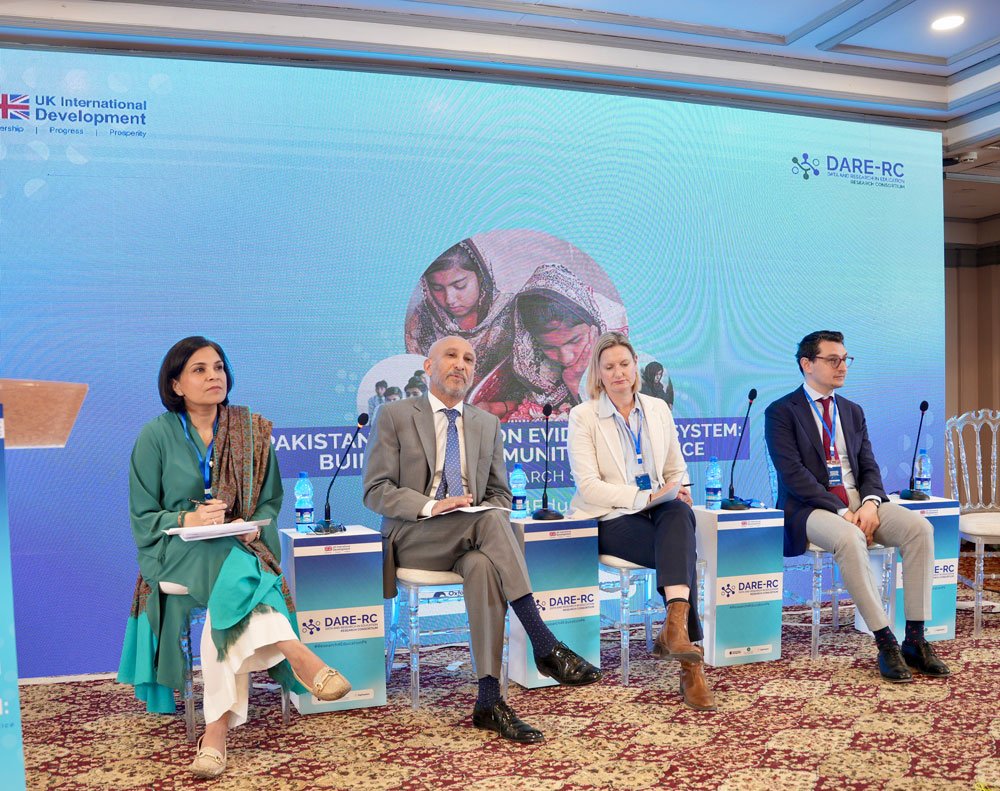
DARE-RC Hosts Research Symposium to Advance Evidence-Based Education Reform in Pakistan
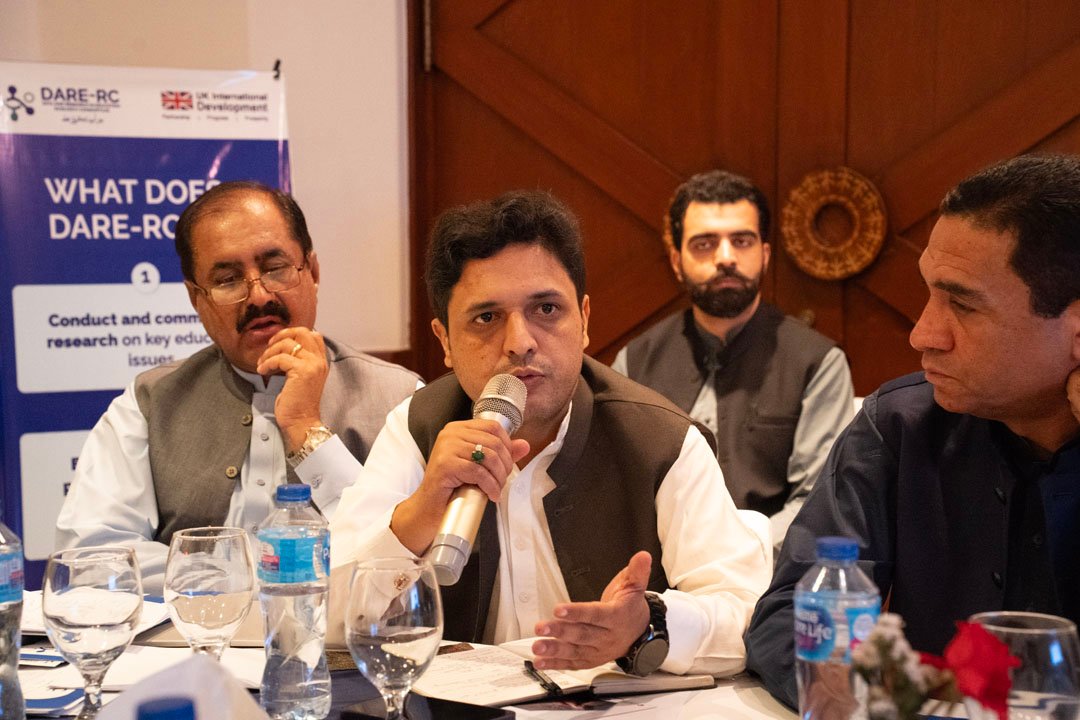
Policymakers and researchers gather in Quetta for advancing data-informed education policies
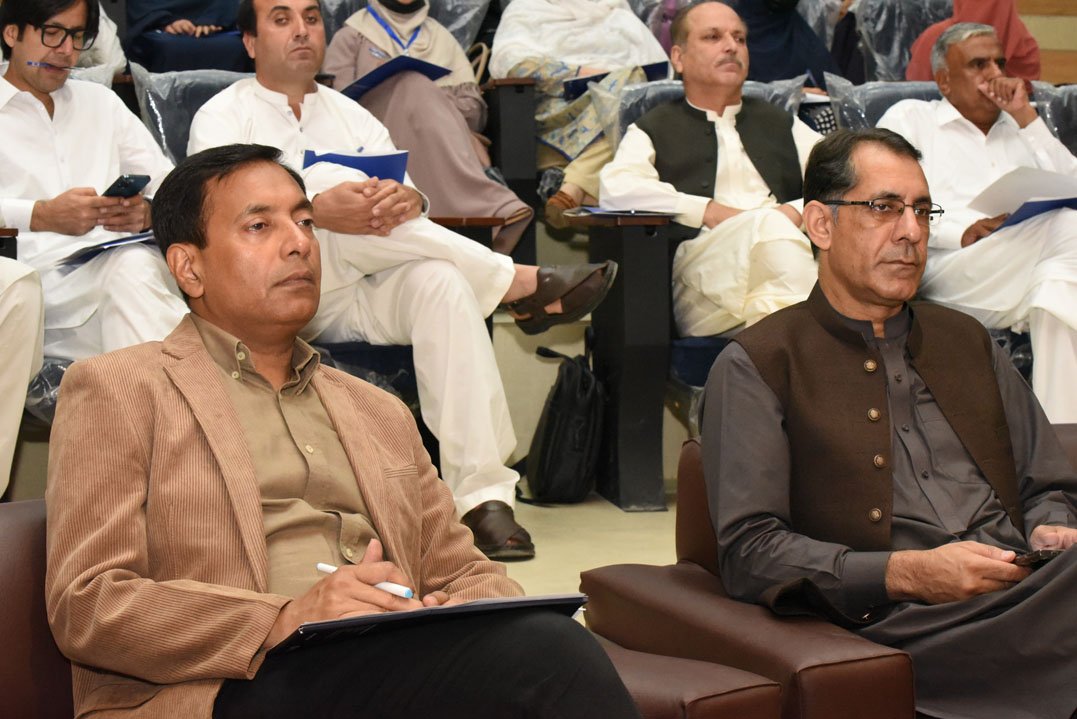
Researchers and policymakers convene in Peshawar for making research-driven education policies
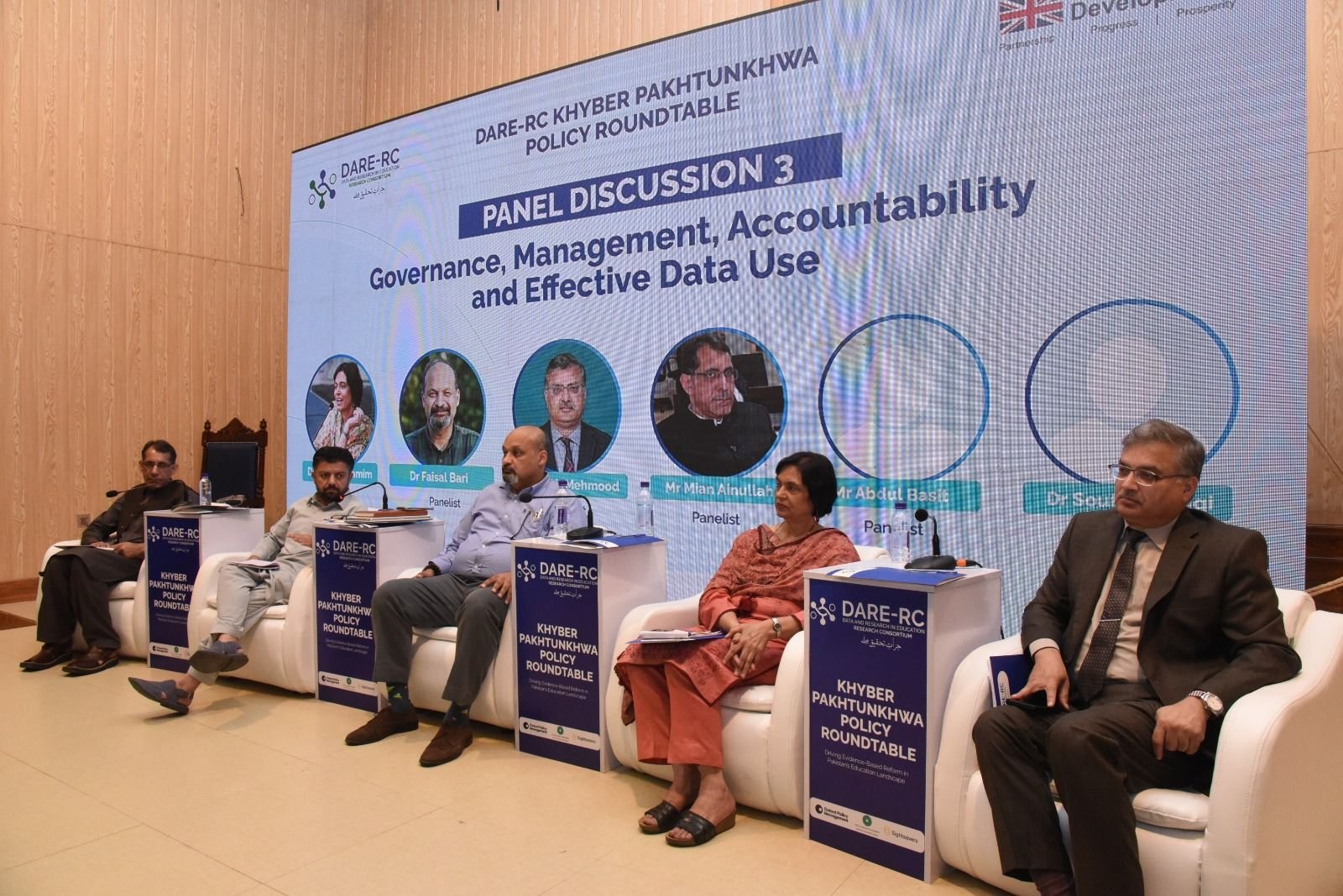
DARE-RC Convenes Sindh’s Researchers and Policymakers at a Policy Roundtable to Drive Equitable Education in Sindh
Latest Webinars
From Evidence to Scale: Rethinking Education Reform in Pakistan

